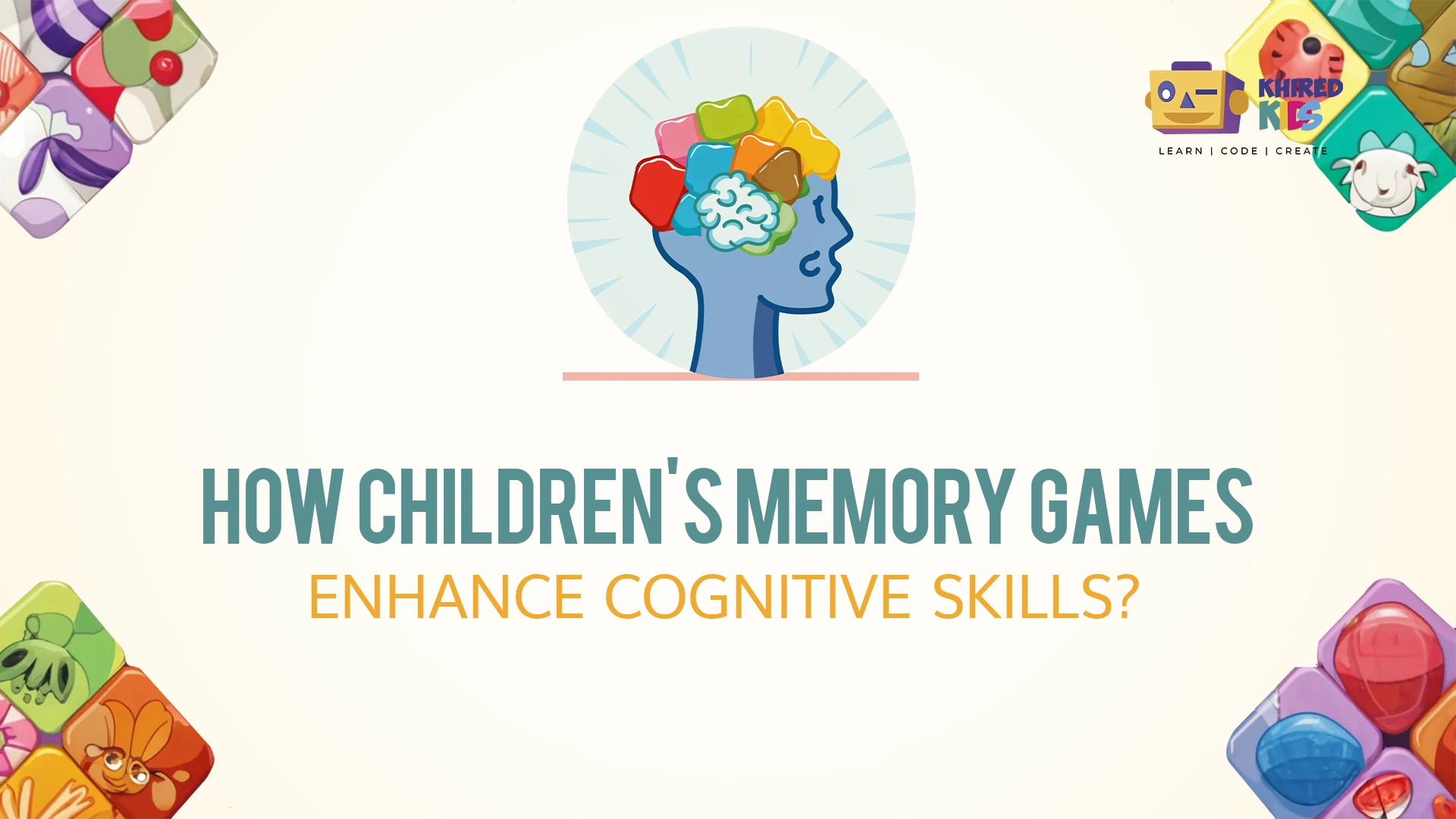Many parents might think it’s an odd idea that how games could possibly help kids learn essential skills. However, nowadays many games have been developed which help kids to learn important skills and educate them while they get to have fun.
Learning through games has emerged as a new tactic to engage kids in learning useful skills. One of these games is called memory games, which help kids enhance their cognitive skills.
Cognitive skills, also known as cognitive functions, are skills of the mind. These are the functions our brain uses to think, process information, pay attention and remember things. They are what help in always assisting your thought process as well as memory retention.
For these very reasons, it is quite important for your kids to enhance their cognitive skills and you can help doing that through games which makes it easier for you and them.
What are Memory Games for Children?
Memory games rely on the players’ ability to recall information. They were designed to enhance working memory, brain function, and mental health. They also help improve memory retention as they strength the neural pathways associated with it.
Moving further, memory games help kids to build thinking skills and concentration that help in building leadership in kids and are key skills to have in today’s world as we live in an overstimulated world.
In this world, we often are unable to focus and remain in control of our thoughts thus, it is important for our kids to have enhanced cognitive skills that help them do so.
5 Best Recommended Memory Games for Kids
After reading what are the memory games, it is important for us to let you know some of the best memory games you can introduce to your child to help them get started.
1. Puzzle Games
Puzzle games play an important role in developing the skills of problem-solving because it contain different sequences, logic, patterns, and more that allow kids to strengthen their brain for extra ordinary problems and also train them for difficult tasks.
2. Matching Game
These require players to match similar elements. This prompts kids to remember the location of objects and images and then establish connections to find pairs. It improves a child’s memory and concentration skills.
3. Sequence Game
In the sequence game, kids can improve their short-term memory. This is because in the game they must follow a specific sequence which may be a list of numbers, items or actions which requires them to think carefully and remember the sequence as it was.
4. Storytelling Games
Storytelling games include different types of tasks for kids such as picture storytelling, remembering the story, and more. In the first task “Picture Storytelling”, there is a picture provided to the kids and kids must have to create the story behind this picture.
5. Simon Says
A classic memory game for kids as it requires them to attentively listen and re-call what they must do quickly.
How Do Memory Games Enhance Cognitive Skills?
We will be discussing how memory games help enhance multiple cognitive skills. As discussed before, memory games in cognitive development for kids are extremely useful for them. Let’s read about the benefits to help gain more perspective on how.
Improved Concentration and Attention
Memory games require focus and attention when playing, this could be having to remember the location of cards or listening carefully during Simon Says.
These games demand attention which helps to overall improve a child’s attention span and increase their concentration, both are useful skills for a child in academics and daily life.
Next time, play another round of Simon Says when your kid wants to because you’re helping them improve their skills more.
Boosting Visual and Auditory Processing
Another benefit of memory is how it improves visual recognition and auditory processing. Many memory games include having to spot difference, link related images which helps kids to improve their visual skills as they remember shapes, colors, or patterns.
It enhances their ability to retain information and being able to differentiate images from one another clearly. Moreover, games like Simon Says push them to listen carefully which enables kids to remember sounds and reproduce auditory patterns.
Developing Problem-Solving Skills
Problem-solving skills are another part of cognitive development and memory games for kids that differ sports from games are just the way to go.
Memory games include mazes and puzzles children must solve and with trial and error, they learn how to perfect their strategy to solve them logically and efficiently.
It helps to enhance their memory as they concentrate, and it boosts their problem-solving skill, both of which are essential skills for kids to adapt to for their future.
Improving Short-Term and Long-Term Memory
It has been observed that memory games help to enhance your short-term and long-term memory. Players must remember the position of cards when matching or recalling a certain sequence and game patterns.
These exercises improve the functioning of short-term memory and will also improve the child’s long-term memory. This is a vital area to work on as this will make it easier for a child in the future to retain and recall information when learning.
Conclusion
We have finally understood how games, or memory games for kids to be precise, can contribute to a child’s cognitive development.
It might be a new revelation for some parents to think games could be an effective learning strategy, but now you know they are! By incorporating memory games as daily activities, we give kids the opportunity to learn through play and enhance their cognitive skills.
With enhanced cognitive skills, they benefit by improving their memory, concentration, and attention span.
Moreover, they also develop essential problem-solving skills alongside better auditory and visual processing. So, next time your kids want to play a little longer, let them play by thinking of the benefits memory games may bring to their future development.


0 Comments